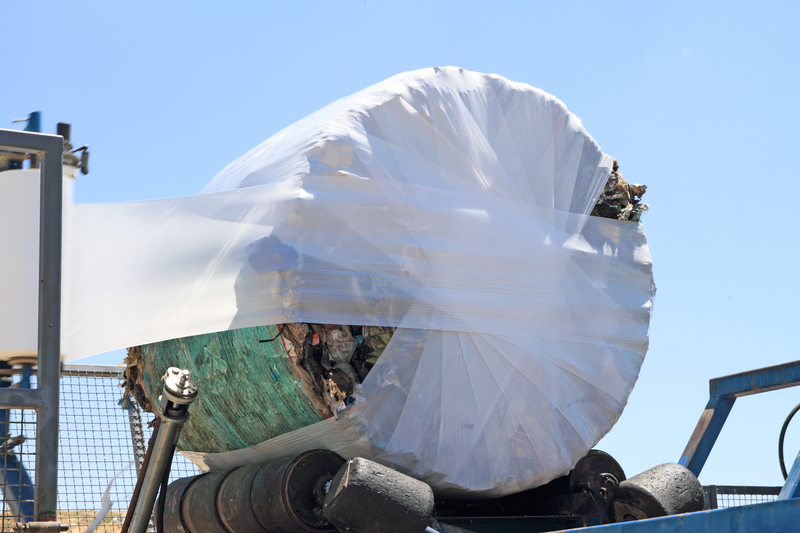Plant-Based Plastics: Future Innovations
Posted on 18/10/2025
As the world confronts the detrimental impacts of conventional plastics on the environment, the interest in plant-based plastics, or bioplastics, has been rapidly growing. These innovations promise not only to reduce our dependency on petroleum-based materials but also to minimize the ecological footprint of our plastic use. In this article, we delve into the exciting future innovations in plant-based plastics, examining the benefits, challenges, and upcoming trends.
The Rise of Plant-Based Plastics
Plant-based plastics are made from renewable biological sources such as corn starch, sugarcane, and even algae. Unlike traditional plastics derived from finite fossil resources, bioplastics offer a sustainable alternative, representing a significant advancement in green technology.

Innovative Materials: Beyond Corn and Sugarcane
While corn and sugarcane are the most commonly used sources for producing bioplastics, researchers are exploring a wider range of materials to improve the sustainability and functionality of these plastics.
Algae-Based Plastics
Algae is emerging as a promising source for bioplastics due to its rapid growth rate and low resource requirements. Algae-based plastics can potentially be produced with minimal environmental impact compared to other plant sources. Companies like Algix are already utilizing algae in the production of flexible and durable plastics that have applications in packaging, agriculture, and more.
Cellulose-Based Plastics
Cellulose, the primary component of plant cell walls, is another burgeoning source of bioplastics. Research has shown that cellulose can be processed into durable and biodegradable plastics with a wide range of applications, from medical devices to packaging materials. These innovations are currently being explored by companies such as Novamont and BASF.
Emerging Technologies
Apart from exploring new source materials, there are ongoing technological advancements aimed at enhancing the efficiency and performance of plant-based plastics.
3D Printing with Bioplastics
3D printing is revolutionizing various industries, and the integration of bioplastics into this technology is paving the way for more sustainable manufacturing processes. Companies like ColorFabb and Filabot offer bioplastic filaments that can be used in 3D printers to create customizable, eco-friendly products.
Enhanced Degradability
One of the key advantages of bioplastics is their potential for biodegradability. Researchers are continually working to improve the degradation process of bioplastics to ensure they break down more efficiently in natural environments. Innovations such as enzyme-based degradation and microbial composting are showing promise in accelerating the breakdown of bioplastics without leaving harmful residues.
Pros and Cons of Plant-Based Plastics
While plant-based plastics offer numerous benefits, they also face certain challenges that need to be addressed to maximize their potential.
Pros:
- Reduced dependence on non-renewable resources like petroleum.
- Lower carbon footprint during production.
- Potential for biodegradability, reducing plastic pollution.
- Innovative applications in various industries, including medical, automotive, and packaging.
Cons:
- Higher production costs compared to conventional plastics.
- Challenges in achieving consistent biodegradability.
- Limited infrastructure for bioplastic recycling and composting.
- Possible competition with food resources if crops like corn are heavily utilized.
Tips for Adopting Plant-Based Plastics
- Support companies that prioritize sustainable packaging and bioplastic products.
- Stay informed about advancements in bioplastic technology to evaluate their true environmental impact.
- Consider the entire lifecycle of bioplastics, from production to disposal, when making purchasing decisions.
- Advocate for better recycling and composting infrastructure to handle bioplastics effectively.

Key Takeaways
- Plant-based plastics are a promising solution to reduce reliance on petroleum-based plastics and mitigate environmental harm.
- Innovative materials like algae and cellulose are expanding the potential of bioplastics.
- Technological advancements are essential for improving the efficiency and biodegradability of bioplastics.
- The adoption of bioplastics comes with challenges that need to be addressed through continued research and development.
- Consumers can play a significant role in promoting sustainable practices by supporting bioplastic products and advocating for better waste management solutions.
Conclusion
Innovations in plant-based plastics are providing exciting opportunities to create a more sustainable future. By harnessing renewable biological resources and advancing production technologies, bioplastics have the potential to significantly reduce our environmental footprint. However, the successful integration of these materials requires a collaborative effort among researchers, manufacturers, policymakers, and consumers. With continued innovation and commitment to sustainability, plant-based plastics can become a key component in addressing the global plastic pollution crisis.
Latest Posts
DIY Paper Recycling at Home in 6 Steps
Advance Your Recycling Approach
Plant-Based Plastics: Future Innovations






